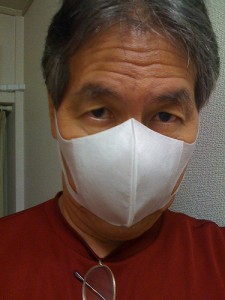Islet cell transplant recovery depends on careful and rigorous post procedural care. This is because after an islet cell transplant, there is a risk of the body rejecting the newly transplanted cells. In addition to this, the introduction of ‘foreign’ substances into the body can leave a patient vulnerable to infections. Rigorous care and monitoring are required for ideal islet cell transplant recovery.

Short Term Tips For Islet Cell Transplant Recovery
Although the islet cell procedure takes only around an hour, you would be required to stay at the hospital for several days after the procedure. Keeping the following points in mind will help you during this time.
- Regularized Insulin Intake: Islet cell transplant recovery involves taking insulin the first few weeks after the surgery. These levels will be much lower than your pre-procedure insulin intake and will keep fluctuating. You will be required to be in constant touch with your doctors and transplant team.
- Constant Blood Sugar Tests: Your blood sugar levels will be constantly monitored – in fact several times a day initially – and this is a vital part of post procedural care. The transplanted islet cells will take time to supply their full quota of insulin. Keeping your blood sugar levels within the accepted range will ensure that the newly transplanted islet cells are not pushed or overworked until the engraftment is completed and they are ready to start producing optimum levels of insulin. The transplant team will require you to keep a daily track of your blood sugar.
- Pre-planned Healthy Diet: Islet cell transplant recovery also involves following a careful diet and healthy living practices. This will make your body more efficient and will increase the probability of the transplanted islet cells settling down.
- Regular Immunosuppressant Medication: Transplantation carries with it the risk of rejection. You’ll need to take immunosuppressant drugs for the rest of your life. Immunosuppressant drugs carry their own risks. You will be educated on how and when to take your drugs and how to spot any side effects. It is essential to take the drugs carefully, because the situation might get very risky once your body starts rejecting the transplanted cells.
You will also need to meet your physician regularly – at least once a week. In fact, this constant monitoring and adjustment of the medication and insulin levels form a very critical part of the islet cell transplant recovery process.
A landmark study known as the Edmond Protocol reported that side effects that result from the immunosuppressant drugs and the complications arising from the procedure are much more serious than originally estimated.
The need for better immunosuppressant drugs as well as vigorous and constant aftercare was seen as one way to overcome the problems associated with islet cell transplant recovery.
Long Term Tips For Islet Cell Transplant Recovery
After an islet cell transplant, your body will have a lower ability to fight infections and diseases. This is because the immunosuppressant drugs reduce your body’s ability to fight against foreign substances. During the islet cell transplant recovery phase, you will be vulnerable to infections. While infections can be treated, you can avoid them by taking the following precautions:
(i) Be extremely cautious about your daily hygiene.
(ii) Avoid going to areas where the chances of infection are high, e.g. hospitals.
(iii) Follow safe sex practices.
Immunosuppressant drugs can have toxic side effects. You’d have to watch out for these side effects and take the necessary care to reduce their impact. Ask your doctor about the side effects that the prescribed drugs can cause and educate yourself on how to cope with them. You should also go in for cancer prevention check-ups on a regular basis.
An islet cell transplant would involve undergoing several tests over the years to see how your body is responding to the immunosuppressant drugs. Be mentally and physically prepared to undergo these tests.
Statistics indicate that while 40 per cent of patients remain insulin free for a year after the surgery, this figure drops to 10 per cent in five years. This means that you might be back on an insulin regimen for diabetes treatment even after the surgery. Good aftercare can help you go insulin free for a longer time period after the islet cell transplant recovery phase.